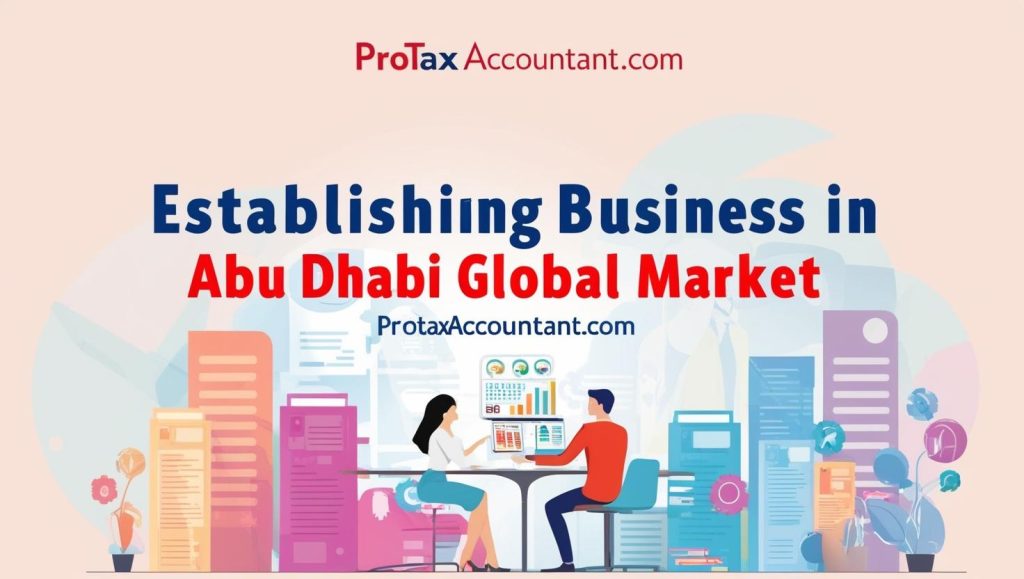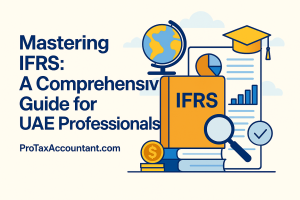The Abu Dhabi Global Market (ADGM) has emerged as a premier international financial hub, offering a transparent regulatory environment, state-of-the-art infrastructure, and strategic connectivity to global markets.
Establishing a business in ADGM requires adherence to a structured process involving entity selection, documentation, regulatory compliance, and financial planning.
This guide synthesizes critical steps, costs, legal obligations, and strategic advantages to provide entrepreneurs with a roadmap for successful company formation.
Key considerations include selecting an appropriate legal entity, reserving a compliant company name, preparing a detailed business plan, meeting capital and office requirements, and navigating licensing procedures.
Post-registration obligations such as annual filings, visa management, and ongoing compliance further underscore the importance of meticulous planning and engagement with ADGM’s support services.
Understanding the ADGM Business Ecosystem
ADGM operates as an independent financial free zone under a common-law framework, providing businesses with a stable and predictable legal environment.
The jurisdiction’s tripartite structure—comprising the Registration Authority, Financial Services Regulatory Authority (FSRA), and ADGM Courts—ensures robust governance and regulatory oversight.
Companies benefit from 100% foreign ownership, tax exemptions, and access to a network of professional service providers, positioning ADGM as a strategic gateway for regional and international expansion.
Legal and Regulatory Framework
ADGM’s regulatory framework aligns with global standards, emphasizing transparency and efficiency. The Registration Authority oversees company incorporation and commercial licensing, while the FSRA regulates financial services activities.
Businesses must comply with the ADGM Companies Regulations 2015 and Commercial Licensing Regulations 2015, which mandate annual financial reporting, event-driven filings, and adherence to anti-money laundering (AML) protocols.
Non-financial and retail entities interact with the Business Development team, whereas financial service providers require pre-approval from the FSRA before registration.
Step-by-Step Process for ADGM Company Setup
Entity Selection and Name Reservation
The first step involves choosing a legal structure that aligns with business objectives. ADGM permits several entity types, including:
- Limited Liability Company (LLC): suitable for small to medium enterprises with restricted liability for shareholders.
- Public/Private Limited Companies (PLC/LLP): Ideal for larger enterprises seeking to raise capital through public offerings.
- Branch Offices: Allows foreign companies to establish a presence without forming a separate legal entity.
- Special Purpose Vehicles (SPVs): Used for asset holding or project financing, exempt from physical office requirements.
Following entity selection, businesses must reserve a unique company name through ADGM’s Online Registry Solution.
Names must not infringe on existing trademarks, contain offensive terms, or duplicate existing registrations.
A $200 fee applies for a 30-day reservation, extendable twice with additional payments.
Business Plan Development
A comprehensive business plan is mandatory, detailing market analysis, operational strategies, financial projections, and risk management.
This document demonstrates the venture’s viability to ADGM authorities and guides long-term decision-making.
For financial service providers, the plan must include compliance strategies for FSRA regulations, such as capital adequacy and consumer protection measures.
Fulfilling Regulatory Requirements
Physical Office and Capital Requirements
All entities except SPVs must lease office space within ADGM’s premises. The minimum share capital varies by activity:
- Category A (Financial Services): $15,000 initial registration.
- Category B (Non-Financial Services): $10,300 initial registration.
- Category C (Retail): $6,000 initial registration.
Companies must appoint a resident secretary responsible for maintaining statutory records and ensuring regulatory filings.
Failure to meet these requirements can result in penalties or license revocation.
Document Submission and Fee Payment
Applicants submit incorporation documents, including memoranda of association, shareholder agreements, and director details, via ADGM’s Online Registry Solution.
Financial service providers must additionally submit FSRA approval letters. Required fees include:
- Registration Fees: Ranging from $6,000 to $15,000 based on activity category.
- Annual License Renewal: $4,000 to $13,000 depending on business type.
- Additional Activity Fees: Applicable for specialized services like fund management or insurance.
Payment methods include credit card transactions through the online portal or bank transfers to designated USD/AED accounts.
Licensing and Commencement
Upon approval, the Registration Authority issues a commercial license, enabling legal operations.
Companies must then open a corporate bank account with an ADGM-approved institution to facilitate transactions.
Delays in submission or incomplete documentation can prolong the process, emphasizing the need for meticulous preparation.
Financial Considerations and Cost Breakdown
Initial and Recurring Costs
ADGM’s fee structure is activity-based, with distinct costs for registration, licensing, and compliance:
| Cost Component | Category A (Financial) | Category B (Non-Financial) | Category C (Retail) |
|---|---|---|---|
| Initial Registration | $15,000 | $10,300 | $6,000 |
| Annual License Renewal | $13,000 | $8,000 | $4,000 |
| Office Space (Annual Lease) | $25,000–$50,000 | $20,000–$40,000 | $15,000–$30,000 |
Additional fees apply for specialized activities, name reservation extensions ($200 per renewal), and paper-based applications (higher processing charges).
Tax and Operational Advantages
ADGM entities enjoy full exemption from corporate and personal income taxes, no currency restrictions, and double taxation treaties with over 130 countries.
These benefits, coupled with streamlined import-export procedures, enhance profitability and operational flexibility.
Post-Registration Compliance and Governance
Annual Filings and Reporting
Companies must submit annual financial statements and returns to the Registration Authority, disclosing shareholder details, capital structure, and director changes.
Financial service providers face enhanced reporting obligations, including AML audits and risk assessments supervised by the FSRA.
Visa and Employee Quotas
ADGM offers renewable two-year employee visas, with quotas determined by office size and business activity.
The ACCESSADGM portal facilitates visa applications, health insurance enrollment, and labor contract processing.
Employers must adhere to UAE labor laws regarding wages, working hours, and employee benefits.
Legal Entity Identifier (LEI) and ISIN Allocation
Financial instruments issued by ADGM entities require a Legal Entity Identifier (LEI) from the Registration Authority and an International Securities Identification Number (ISIN) from WM Data Services.
These identifiers ensure compliance with global trading standards and regulatory transparency.
Strategic Benefits of ADGM Incorporation
Access to Regional and Global Markets
ADGM’s proximity to Abu Dhabi’s financial district and major transportation hubs facilitates access to Middle Eastern, African, and Asian markets.
The jurisdiction’s common-law framework and arbitration center provide dispute resolution mechanisms familiar to international investors.
Networking and Support Services
ADGM’s business support team assists with licensing, compliance, and market entry strategies. Regular industry events and partnerships with financial institutions foster collaboration and innovation.
Companies also gain access to premium office spaces in iconic developments like Al Maryah Island, enhancing corporate prestige.
Challenges and Risk Mitigation
Regulatory Complexity
Navigating ADGM’s dual regulatory system (Registration Authority and FSRA) requires expertise. Engaging local legal and financial advisors is recommended to ensure compliance and avoid penalties.
Market Competition
While ADGM offers significant advantages, businesses must conduct thorough market research to differentiate themselves in sectors like finance, technology, and renewable energy.
Tailoring services to regional demands—such as Islamic finance or sustainable investments—can enhance competitiveness.
Conclusion
Establishing a business in ADGM demands careful planning, financial readiness, and adherence to regulatory protocols.
By leveraging ADGM’s world-class infrastructure, tax incentives, and strategic location, entrepreneurs can position their ventures for long-term success in the MENA region and beyond.
Prospective investors should consult ADGM’s Business Development team and accredited service providers to navigate the incorporation process efficiently.
Continuous engagement with regulatory updates and market trends will further ensure sustained growth and compliance in this dynamic financial hub





